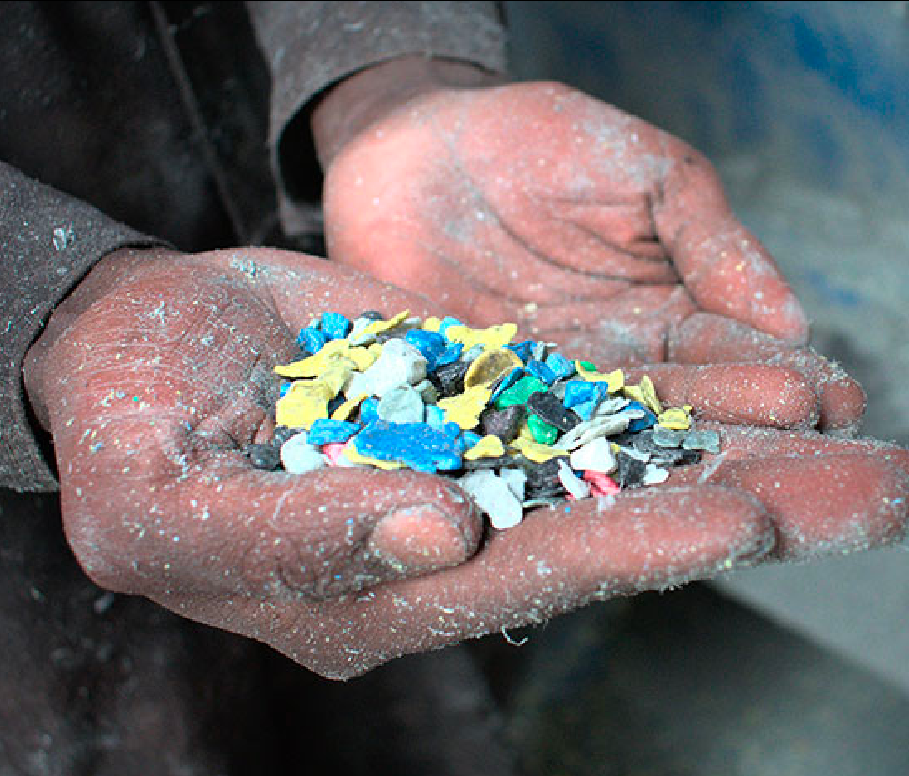This case study is based on an article published by WIPO Magazine found here.
Who: Gjenge Makers, led by Nzambi Matee, founder
The Challenge:
Plastics and other materials constitute a significant waste stream for economies around the globe, oftentimes ending up in landfills with negative environmental impacts. For example, Nairobi, Kenya generates 2,400 tons of daily waste that is not always properly disposed of, creating litter and other issues.
The Opportunity:
Grounded in her passion for environmental conservation, Nzambi Matee set out to revolutionize how common items are recycled in her home country of Kenya and across Africa. This led to the creation of Gjenge Makers, a company that transforms plastic into sustainable and affordable building materials.
Through a cutting-edge process, the company combines plastic waste with sand to create a paste that is then shaped into pavers. The pavers, which come in various sizes and weights, are used for numerous construction purposes. Due to the fibrous nature of the plastic, the final product is seven times stronger than conventional concrete.
At present, Gjenge Makers produces between 1,000 and 5,000 pavers a day, with plans to scale up manufacturing tenfold to meet current demand. Additionally, the company has recycled more than 20 tons of plastic and created more than 100 jobs for garbage collectors, women and youth, serving as an important partner to the local economy.
Intellectual property (IP) rights are essential for spurring innovations like Gjenge Makers’ pavers. Matee notes that throughout Africa, the value of IP protections has not been fully realized yet, largely due to cultural norms and influences. Understanding the crucial role of IP in brining new products to market, she states that “…we have to move past our traditional perception of IP, which may have contributed to delays in putting into place the necessary infrastructure to protect IP.”
As economies and populations around the world continue to grow and change, it will be imperative to adapt how materials are used and recycled. The protections afforded by a robust IP infrastructure help support innovations necessary for the health of local communities and the world.
"Nzambi Matee set out to revolutionize how common items are recycled in her home country of Kenya and across Africa"


